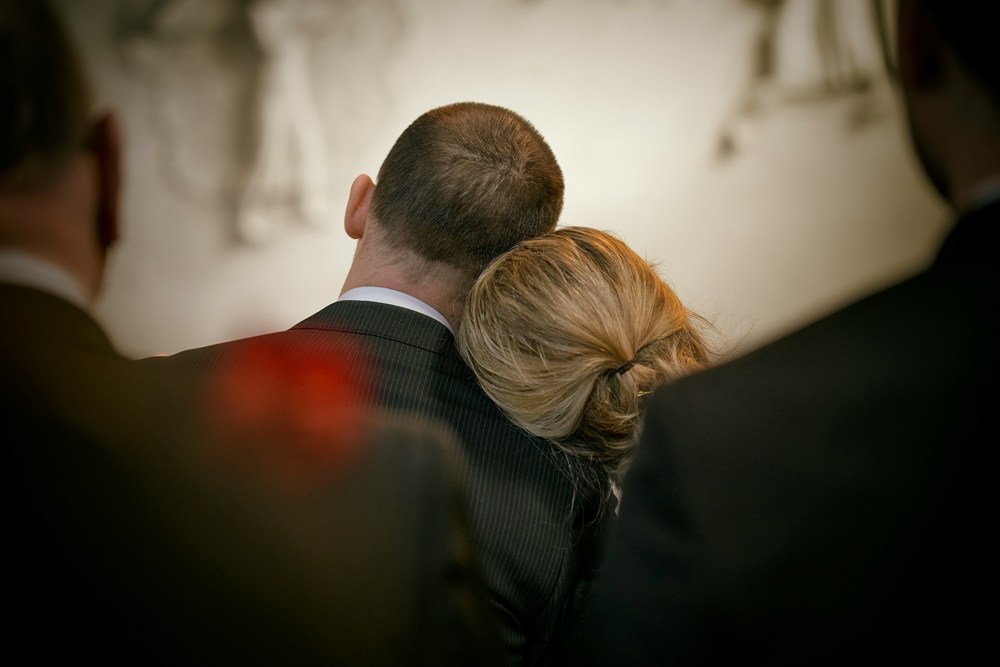
Wrongful death occurs when someone dies due to another's negligence or misconduct. It can result from various incidents. These may include car accidents, medical malpractice, or workplace accidents. The sudden and preventable nature of these deaths often intensifies the grief process.
The Initial Shock
Learning about a loved one's wrongful death is devastating. The news can feel surreal, and many people experience numbness or disbelief. This is the mind's way of protecting itself from overwhelming emotions. It's a normal initial response to tragic news.
Legal Aspects and Emotional Toll
Pursuing a wrongful death claim can be emotionally draining. It forces families to relive the tragedy. However, it can also provide a sense of justice. It may offer closure. The legal process can be complex and lengthy. Having a supportive legal team such as Romanucci Blandin Law is crucial.
Overlapping Stages
Grief stages often blend into one another. A person might experience multiple stages simultaneously. For example, someone could feel angry about their loss while also bargaining for a different outcome. These emotions can coexist, creating a complex emotional landscape.
Non-Linear Progression
There's no predetermined order for experiencing grief stages. One person might start with denial, move to anger, then depression. Another might begin with acceptance, only to cycle back through other stages later. This non-linear nature is normal and expected.
Revisiting Stages
Grief isn't a one-time journey through these stages. People often revisit various stages multiple times. A grief trigger, like a birthday or anniversary, might cause someone to cycle back through earlier stages they thought they'd moved past. This doesn't indicate a lack of progress but rather the ongoing nature of the grieving process.
Seeking professional help is crucial in these cases.
The Impact on Family Dynamics
A wrongful death can dramatically alter family dynamics. Roles may need to be reassigned. Financial situations might change. The family unit may feel incomplete, so open communication is key during this time to help adapt to the new normal.
Coping Strategies
- Acknowledge Your Feelings: Allow yourself to feel. Don't suppress emotions.
- Seek Support: Lean on friends and family. Consider joining a grief support group.
- Take Care of Your Health: Maintain a balanced diet. Get enough sleep. Exercise regularly.
- Create Memorials: Find ways to honor your loved one's memory.
- Practice Self-Compassion: Be patient with yourself. Healing takes time.
- Consider Professional Help: A therapist can provide valuable tools for coping.
The Healing Journey
Healing is a gradual process. It's not about forgetting. It's about learning to live with the loss. Some days will be harder than others. That's normal. Celebrate small victories. Acknowledge progress, no matter how small.
Finding Meaning
Many find it helpful to create meaning from their loss. This might involve advocating for changes to prevent similar tragedies, volunteering for related causes, starting a foundation in the loved one's name, or event sharing their story to help others. These actions can provide a sense of purpose and honor the deceased's memory.
The Role of Forgiveness
Forgiveness is a personal choice. It's not about condoning the act that led to the death. Rather, it's about freeing oneself from anger and resentment. This can be a crucial step in healing. However, it's a deeply personal decision. There's no right or wrong timeline for forgiveness.
There's no set timeline for healing. Be patient with yourself. Seek support when needed. Remember that healing is possible, even if the loss is never forgotten.
MORE ON THE FLASH LIST
































